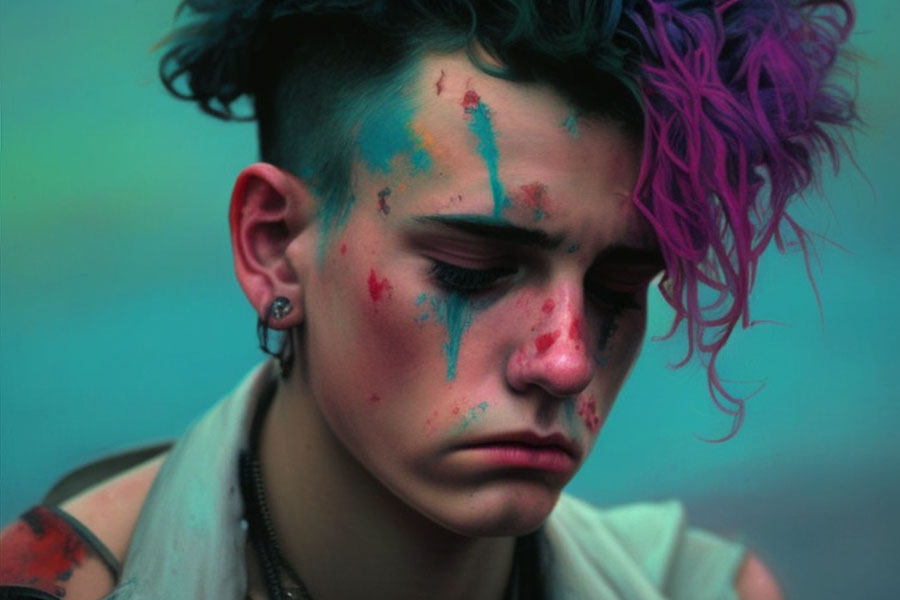Conversion therapy, also known as reparative therapy or sexual orientation change efforts (SOCE), is a harmful and discredited practice that seeks to change an individual’s sexual orientation or gender identity. Despite being debunked by the American Psychological Association and many other professional organizations, conversion therapy continues to be performed around the world, often targeting young and vulnerable members of the LGBTQ+ community.
The techniques used in conversion therapy can range from talk therapy and behavioral conditioning to electroshock therapy and other extreme measures. All of these approaches are based on the false premise that being LGBTQ+ is a mental illness or a choice that can be “cured.” In reality, sexual orientation and gender identity are innate aspects of a person’s identity, and attempts to change them can cause immense psychological harm.
The Harmful Effects of Conversion Therapy
Numerous studies have shown that individuals who undergo conversion therapy often experience serious psychological distress, depression, anxiety, and increased risk of substance use problems, self-destructive behavior, and suicide attempts.
Conversion therapy can also result in feelings of shame, anger, and self-hatred, as individuals may be forced to hide their gender or sexual identity and feel unsafe in their own skin. The practice has been found to be particularly harmful to LGBTQIA+ youth, who are often coerced into undergoing conversion therapy by their families or religious communities. Moreover, conversion therapy has been denounced by major medical and mental health organizations, including the American Medical Association, the American Psychological Association, and the World Health Organization.
Who Was Leelah Alcorn?
Leelah Alcorn was born in 1997 in Kings Mills, Ohio, and identifyied as a transgender girl from an early age. Despite feeling isolated and misunderstood by those around her, Leelah remained determined to live as her true self. She found solace in online communities of other transgender individuals, where she could express herself freely and find support and acceptance.
Leelah’s parents, however, did not share her acceptance of her gender identity. They refused to allow her to transition, taking her to Christian therapists and insisting that she was a boy. Leelah felt increasingly isolated and depressed, with nowhere to turn for support. She wrote about her struggles in a Tumblr blog, where she shared her hopes and dreams for the future, as well as her fears and frustrations.
On December 28, 2014, Leelah took her own life by stepping in front of a truck on a busy Ohio highway. In a suicide note posted to her Tumblr blog, she explained that she could no longer endure the pain of living in a body that did not match her true self, and that she hoped her death would spark change in how transgender individuals were treated by society and the medical establishment.
A Wake Up Call
Leelah’s death sent shockwaves through the LGBTQ+ community and the world at large. It was a heartbreaking reminder of the discrimination and isolation that many transgender individuals face, as well as the dangers of conversion therapy and other harmful practices aimed at changing someone’s gender identity. Her death was a wake-up call to many about the dangers of conversion therapy and the importance of supporting LGBTQ+ youth.
Since then, there has been progress in the fight against conversion therapy. In 2018, the National Association of Social Workers updated their code of ethics to prohibit social workers from engaging in conversion therapy. In the same year, 15 states and the District of Columbia had laws prohibiting licensed mental health providers from practicing conversion therapy on minors. Today, 20 states and the District of Columbia have such laws in place.
Pushback from conservative and religious groups
However, the fight against conversion therapy still faces pushback from some conservative and religious groups who view it as a legitimate practice. Some opponents argue that such laws infringe on the rights of parents to make decisions about their children’s healthcare, while others claim that conversion therapy is a form of free speech and religious expression.
Despite these challenges, the movement to ban conversion therapy continues to gain momentum. In 2021, the United States Congress reintroduced the Therapeutic Fraud Prevention Act, which would classify conversion therapy as a fraudulent practice and give the Federal Trade Commission the authority to take legal action against those who engage in it. This is a significant step forward in the fight against conversion therapy, as it would provide a national framework for addressing the issue.
The Legal Status of Conversion Therapy
Despite the well-documented harms of conversion therapy, it remains legal in many parts of the world, including some parts of the United States. However, in recent years, there has been growing momentum to ban the practice. Currently, 20 states and the District of Columbia have laws that ban conversion therapy for minors, and a number of other states are considering similar legislation.

Where is conversion therapy legal?
- Countries where conversion therapy is banned include Germany, Brazil, Ecuador, Puerto Rico, and Malta [1].
- In the United States, the District of Columbia and 20 states have banned conversion therapy for minors [2]. However, conversion therapy is still legal in most states [3].
- Some cities in Wisconsin have banned conversion therapy for minors, but the state legislature recently passed a bill allowing it [4].
- Conversion therapy bans have been struck down in Palm Beach County and Boca Raton, Florida by a federal appeals court [5].
- A Washington state law banning conversion therapy for minors has been upheld by the Ninth Circuit court [6].
- In addition, many professional organizations, including the American Medical Association, the American Psychological Association, and the World Health Organization, have condemned conversion therapy as harmful and ineffective [7].
It is important to note that laws and regulations regarding conversion therapy may change over time, so it is important to stay informed on the latest developments.
- The United States: Conversion therapy is legal in some states, although several states have banned the practice for minors. As of March 2023, the states that have banned conversion therapy for minors are: California, Colorado, Connecticut, Delaware, Hawaii, Illinois, Maine, Maryland, Massachusetts, Minnesota, Nevada, New Hampshire, New Jersey, New Mexico, New York, Oregon, Rhode Island, Vermont, Virginia, Washington, and Washington D.C.
- United Kingdom: Conversion therapy is not explicitly banned in the UK, although the government has pledged to ban the practice. Some cities, such as London and Manchester, have passed their own bans on conversion therapy.
- Australia: Conversion therapy is not explicitly banned in Australian federal law, but several states and territories have passed their own laws prohibiting the practice. As of March 2023, the states and territories that have banned conversion therapy are: Australian Capital Territory, New South Wales, Queensland, South Australia, Victoria, and Western Australia. [8]
Why Conversion Therapy Should Be Illegal
Conversion therapy is a harmful and discredited practice that has been linked to numerous negative outcomes, including depression, anxiety, self-harm, and suicide. The practice is based on the false idea that identities and orientations should be changed to conform to heteronormativity and cisgenderism, and it has no medical justification. Given the well-documented harms of conversion therapy, it is imperative that the practice be made illegal to protect vulnerable members of the LGBTQ+ community.
It is important to note that even in locations where conversion therapy is legal, many professional organizations and medical experts have condemned the practice as harmful and ineffective. Additionally, some religious institutions and organizations still offer conversion therapy despite its condemnation by the medical community.
Conversion therapy is a dangerous and discredited practice that has no place in modern society. It is crucial that we work to ban the practice and provide support and resources for LGBTQ+ individuals who have been subjected to it.
